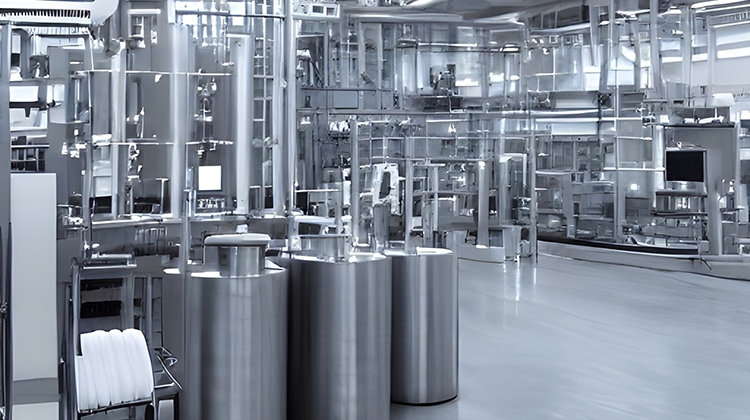Accelerating Drug Development
Pharmaceutical companies are always looking to bring new drugs and equipment faster to the market and gain a higher supply chain agility. Our industry also faces intensely compressed development timelines, which may require drug product and drug substance development to be done in parallel. This can increase the chances of changing attributes for API or DS during development. Yet another important topic is understanding the CMC levers to accelerate the speed to market expectations and strategies to ensure quality therapeutic products are brought to market in an efficient manner.
Presenters in this session will address topics that include applications of Pharmaceutical Continuous Manufacturing (PCM), which is not just a driver for operational excellence but supports sustainability initiatives too. Background, assumptions, and key technical and regulatory considerations behind the application of CMC acceleration levers will also be discussed.
Key takeaways will include principles for the equipment selection and automation solution. They are supported by case studies that can help address gaps in equipment design, and critical technical and regulatory considerations to accelerate product development. It will also highlight the criticality of a strong partnership between biopharmaceutical companies and regulatory agencies to work towards the common goal of serving the needs of the patients.
Design Implementation for Sterile Manufacturing
Ensuring the production of high-quality biopharmaceutical products while maintaining a controlled and sterile environment has never been higher as the demands of biopharmaceutical manufacturing continues to increase. Manufacturing clean spaces and the associated critical systems to be installed are being considered in the early stages of design implementation to ensure the highest level of manufacturing excellence and flexibility.
During the design implementation of biopharmaceutical manufacturing, GMP risk assessments and regulatory rationale must be applied to ensure the highest level of quality. In the opening session, the audience will be introduced to the implementation of Restricted Access Barrier Systems (RABS) with specific case study examples. Next, attendees will learn about the time-to-market deployment of new manufacturing facility through the “hybrid-modular” method, which will also include case-studies about the lessons learned through the implementation process. Lastly, attendees will hear from two (2) of the 2023 Facility of the Year Category Award winners, Nexus Pharmaceuticals Inc. and Chugai Pharma Manufacturing Co.
After attending the attendees will have a better understanding of the challenges and success achieved during the design implementation of new biopharmaceutical facilities through the sharing of technical knowledge and experiences from different players in the design implementation process.
Insights into Clean Space Qualification and Long-Term Reliability Solutions
Once facilities are constructed based on the needed design, the next step in the phase is to ensure the highest state of quality through qualification. The highest quality level is maintained through initial qualification and long-term qualification efforts.
Qualification of manufacturing clean spaces happens on many levels. During this session the audience will get a better understanding of the current state of validation across different cleanroom spaces. In the opening session, the attendees will learn about the adoption of Quality Risk Management (QRM) integrated commissioning and qualification approach. Next, the attendees will learn about risk evaluation for pre-PV (process validation) through the demonstration of batch decision flow charts and case study application from a senior director at Eli Lilly. Lastly, the audience will hear about a comprehensive assessment characterizing optimal cleaning programs.
At the conclusion of this session, the attendees will have a better understanding of the different approaches necessary to ensure a strong quality program and how to ensure longer term clean space reliability solutions.
Pharmaceutical Industry's Prescription for Sustainability
The urgent global environmental crisis has prompted industries worldwide to prioritize minimizing their carbon footprint. Recognizing the need to contribute to a sustainable future, many pharmaceutical companies have also taken action by adopting strategies and roadmaps that are aligned with their sustainability goals. However, achieving NetZero and implementing sustainable practices present challenges and complexities that require collaboration, innovation, and commitment from both the public and private sectors.
To comprehensively address environmental sustainability, organizations must take a holistic approach that encompasses both operations and products. In the opening session, Roche/Genentech, GSK, and Takeda will share their experiences and strategies for minimizing environmental impact and adopting innovative technologies. Roche/Genentech has made remarkable progress, reducing scope 1 and 2 greenhouse gas emissions by 60% since 2004 through energy efficiency projects and data-driven forecasting. Takeda will showcase their initiatives, including Mechanical Vapor Recompression (MVR) in ethanol production and a natural gas-free steam generation system, resulting in substantial carbon emission reductions. Additionally, GSK will highlight its "EcoDesign" program, which integrates environmental sustainability into product design and assessments using a Product Footprint Calculation Tool.
In another interactive session, Pfizer and AstraZeneca will present their ambitious NetZero targets. Pfizer will delve into the challenges associated with regulatory impact, quality control, infrastructure, and the introduction of new products. AstraZeneca will provide a compelling case study on their successful zero-carbon program, focusing on energy reduction projects implemented at their global manufacturing center.
Attendees will gain valuable insights into how the pharmaceutical industry is actively addressing sustainability challenges and driving toward a greener future. Collaboration and knowledge-sharing within organizations play a vital role in fostering innovation and achieving a more sustainable pharmaceutical industry.
Elevate your Knowledge
Manufacturing, Quality Control, and Operational Excellence are critical to our industry and patient success. We have included some key topics in this session which will prove beneficial to all attendees. Efforts have been made to make these presentations lively and engaging, and of course, informative! Please join our industry experts and gain some insights on current issues, trends and solutions.
Learn More & Register








